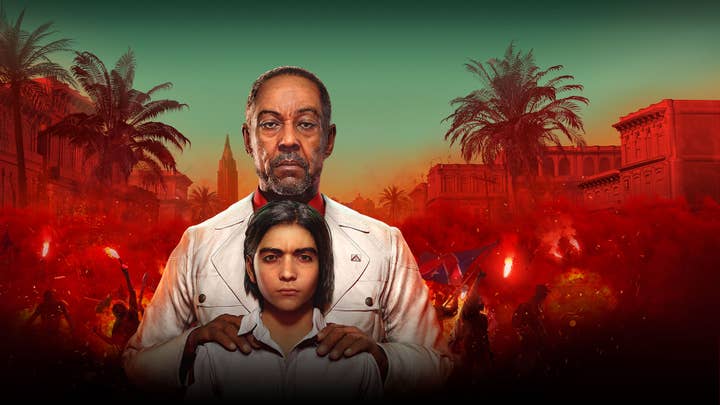How to get a job as a narrative director
The GamesIndustry.biz Academy looks at how to secure one of the most senior roles in video game storytelling
Finding a job in the games industry is no easy task. Our guides can help you to find the right path to the games industry job of your dreams. You can read our other in-depth guides on how to get a job in the games industry on this page, covering various areas of expertise.
Last month, the GamesIndustry.biz Academy explored how to get a job as a games writer -- now it's time to look at the other end of the spectrum.
Taking on a writer or junior writer role can be just the beginning of a career in crafting video game narratives, telling stories that engage and immerse the player more than any other form of entertainment can.
And, as we discovered, those entry-level roles can be more focused on the minutiae of a game's dialogue and lore than the overall story. Enter the narrative director.
"You don't get to invent entirely new genres but you might get to shove the worst parts in the right direction"
Jon Ingold, Inkle
As we'll learn, this role can vary from studio to studio but ultimately gives the holder an overarching view of any game's narrative -- and there are some misconceptions to address from the start.
"If you like having a hand in everything narrative, then it's for you," says Ross Beeley, narrative director of Mafia 3 studio Hangar 13. "But if you're a writer who likes to silo themselves off and just write, it might not be your thing. I like thinking about the high-level concept stuff, working with the artists to bring the world to life, and giving characters a voice; first by writing them, and then casting the right actors to bring them to life."
CD Projekt Red's Marcin Blacha, story director on Cyberpunk 2077, says the role can offer a large amount of freedom and the opportunity to create "beautiful narrative structures" -- but it does mean accepting more responsibility.
Jon Ingold -- creative and narrative director at 80 Days and Heaven's Vault studio Inkle -- says the best part of the job is enabling other talented people: "You can put together a team, nurture them, develop their skills and enjoy the satisfaction of their hopefully-excellent results. And meanwhile you can push the boundaries of what storytelling in games is and what it can do. Narrative directors don't get to invent entirely new genres or revolutionise anything -- who does? -- but you might get to shove the worst parts a little bit in the right direction."
Navid Khavari, narrative director of Ubisoft's upcoming title Far Cry 6, adds: "Narrative touches every aspect of the game from AI, level art, animation, branding, and more. To be clear, a narrative director doesn't have final call on those choices, but they have a voice."
- The difference between a narrative director and narrative designer
- What are the day-to-day responsibilities of a narrative director?
- How do you get a job as a narrative director?
- What qualities and skills do you need as a narrative director?
- Advice for new and aspiring narrative directors
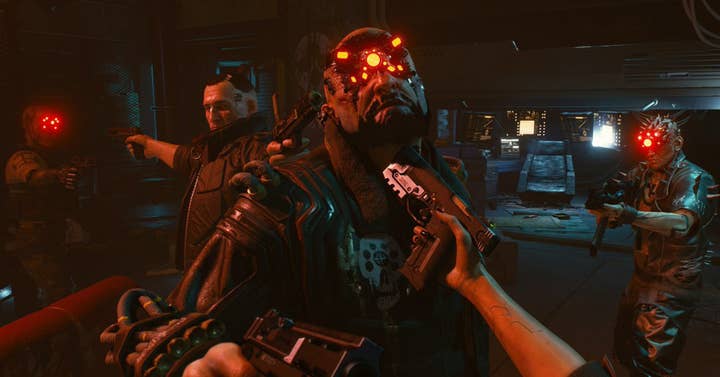
The difference between a narrative director and narrative designer
As with so many roles in the games industry, the function of a narrative director can vary from company to company, as can narrative designer. The narrative director at a AAA studio is likely to have a more focused roles than one at an indie studio, where they're almost certainly going to wear many hats.

Christian Fonnesbech, who last month finished a year-long contract as narrative director at The Surge and Lords of the Fallen studio Deck13 Games, likes to define the narrative director as the 'story lead,' while the narrative designer is responsible for implementing that story into the design of the game and its environments.
"It is the narrative director's job to drive the development of the overall story, characters and universe in collaboration with the other creative leads -- and to work with the creative director, the narrative designers, dialogue writers, screenwriters, recording artists, and so on, to make sure that story is being told," he says.
"The narrative designer's job is to make the story into a playable experience by designing the individual levels and areas. When this works well, there's a positive feedback loop between the creative director, the narrative director and the narrative designers. When it works badly, everybody does their own thing, and then they wake up one day and wondering why the story isn't working.
"The main thing to remember is that the narrative director role is a leadership role, which includes lead writing responsibilities, while the narrative designer is more often seen as a design role."
Beeley adds that the narrative director "might occasionally be in the trenches" but is "always looking at the high-level picture and ensuring you have the right staff in the right place to execute the team's vision."
"The main thing to remember is that the narrative director role is a leadership role, which includes lead writing responsibilities"
Christian Fonnesbech
Michael Chu, former narrative director for Overwatch now at 2K's 31st Union Games, agrees that the narrative director's role is "creating a space" for narrative designers, system designers, writers, artists, sound designers and more to build out the world of the game.
"Subtly guiding and providing direction to maintain consistency across all the creative initiatives, rather than being the one who is writing the dialogue, creating the backstories of the characters, and so on," he says.
Dave Mervik, narrative director at Little Nightmares creator Tarsier Studios, is a prime example of how the role changes at a smaller developer: "I'm currently the entire narrative department. That means I have the unenviable task of creating a vision for myself to execute, which I must then analyse and give myself advice on how to improve upon it.
"That's when it's more important than ever to step back and look at the game with fresh eyes, both your own and those of your colleagues."
What are the day-to-day responsibilities of a narrative director?
Just as the role of a narrative director varies across different studios, it can also change on a daily basis, with Khavari adding that having his duties shift frequently with each stage of production is what he loves most about the job.
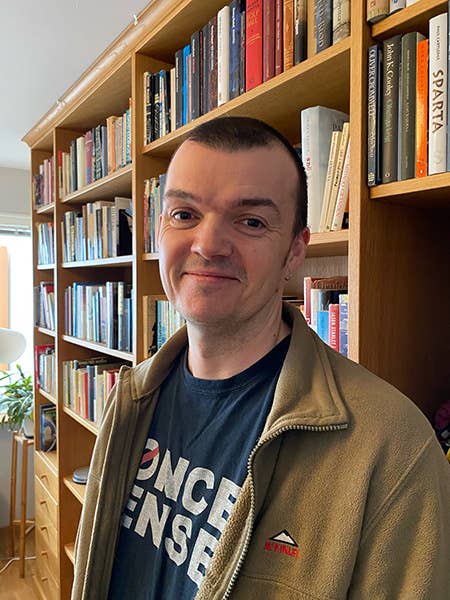
"Early in development, it will range anywhere from vision building, recruiting the narrative team, working on blueprints of the game with other departments, and plotting out our narrative with the writers' room," he explains. "When we transition into full production, the gears shift. With missions and a structure laid out, myself and the team throw ourselves into the writing while I lead the room in script review for VO in missions, barks, or cinematics. The scripts eventually move to the performance capture floor working out scenes with our director and actors.
"While all this is happening I review the game with both the narrative team and in multi-disciplinary reviews to find areas we can improve -- whether it's to add character beats to a mission or flesh out environmental storytelling. My role throughout the entire production is communicating the vision of the narrative -- whether it's town hall-style events or day-to-day meetings. Lots of meetings. So many meetings."
Fonnesbech adds that at the beginning of the project, it's all about developing the world, mythos, backstory, characters and in-game narrative. But the scope of that aspect will vary from studio to studio.
"Depending on how the developer likes to work, this will be more or less front-loaded: some companies want the story laid out in detail beforehand, so all parts of the team can work towards a shared goal. Other companies want the story to develop along the way with input from every possible source. This means the final story emerges towards the later stages of development."
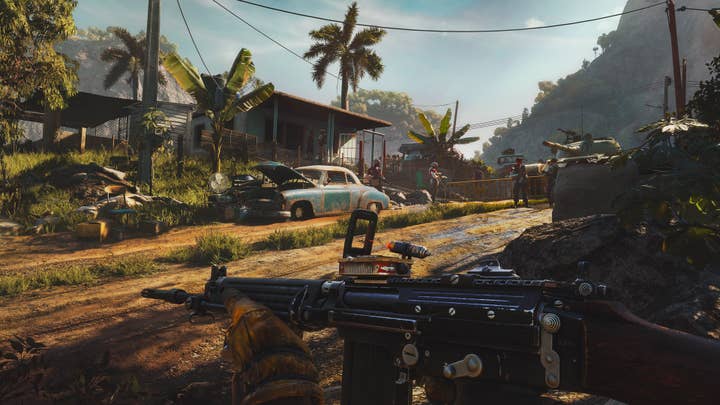
Similar to Mervik, Ingold says he is his "own narrative team" given the small size of his studio. This means he is constantly trying to work out what a project needs next in terms of story elements. He is then responsible for outlining the design for the relevant scenes and mechanics, writing the content, reviewing it, integrating it -- then starting the whole process again.
"When we're working on projects with other writers, I do the top part of that process: work out what needs to be made, what mechanics we have to use, and then edit the content that comes back from the writers to make sure it fits into the wider project and has the right pace and balance," he adds.
"Meanwhile, I'm working with the rest of the team, helping to ensure the flow of the gameplay doesn't get in the way of whatever the narrative is trying to do; or reviewing and suggesting audio design notes; or reviewing and giving feedback on art or character designs. Narrative doesn't just cover written content, for us at least -- it's in absolutely everything."
How do you get a job as a narrative director?
Naturally, starting in a junior writer position can put you on the path to becoming a narrative director -- but each of our experts show there are many different routes to take.
"My role is communicating the vision of the narrative -- whether it's town hall-style events or day-to-day meetings. Lots of meetings. So many meetings."Navid Khavari, Ubisoft
Khavari aspired to become "a political science policy wonk, then a screenwriter, then a musician -- in that order." Games development was not on his radar, but his love of writing led him to a role at a small game company writing motion comics. Keen to stay in game development, he worked on multiple projects and eventually co-founded Ubisoft Toronto, with Splinter Cell Blacklist as his first major shipped title.
During production on this game, his role alternated between narrative design and scriptwriting, with his experience giving him the chance to work on various Far Cry, Assassin's Creed and The Division titles, eventually landing the narrative director role when Ubisoft Toronto was named the lead studio on Far Cry 6.
"An invaluable experience was that I was given opportunities to take on the role without the title," he adds. "On Far Cry 5, I was an associate narrative director while taking on narrative duties for Far Cry 6. This meant I could learn from people who had been working on the brand and successfully navigating it for years. I got to make mistakes before the pressure hit. Ubisoft gave me a great structure and path to take on Far Cry 6 with a much stronger idea of what my role was."
For his career, Fonnesbech says he can "draw a straight line from running D&D campaigns to being head of IP development and from there to narrative director." He began by screenwriting and direction various short films and even a TV series during his university studies, but after graduation decided that "the future of stories wasn't film, it was games." He worked at various developers on a series of game projects, but it was a detour into the financial world that finally led him to the role.
"When I became head of IP development for a game investor, I became fascinated with the intersection between IP and game stories," he says. "That eventually led me to become a narrative director."
Blacha's origins also stem from tabletop RPGs, working at a small publishing house on pen-and-paper and board games. He then found his way to CD Projekt Red, where he worked as a designer on the original Witcher game.

"I wrote a lot, I learned a lot, I made my way through the ranks, and I eventually accumulated enough experience and skills to take on the responsibility of story director," he says.
Chu began his career as a quest designer on World of Warcraft, which -- while technically a design role -- was still steeped in story and narrative. He later shifted to doing a lot more writing and narrative design tasks on Star Wars: Knights of the Old Republic II at Obsidian Entertainment. After returning to Blizzard, he eventually secured his first full narrative role as lead writer on Overwatch, before taking on the position of narrative director at 31st Union last year.
Ángel Luis Sucasas, narrative director at Rime developer Tequila Works, and Ingold both found their starts in indie games. The former worked as narrative lead on AlPixel Games' A Place for the Unwilling and the yet-to-be released Scarf by Uprising Studios before joining Tequilla Works as narrative director in 2019. Meanwhile, the latter began making his own titles as a teenager, with ten games under his belt by the time he was applying for jobs in the industry.
Ingold began as a designer, but with a particular focus on narrative work. He eventually met Joseph Humfrey, with whom he co-founded Inkle, and the pair split the work for their new studio down the middle. While Humfrey handled development, art direction, graphic design and UX, Ingold took on handling balancing, writing, and narrative design.
"So ultimately I became narrative director at Inkle because somebody needed to do it," he laughs.
Mervik, in his own words, "took the long route" -- starting out as QA back in 2001 before moving into design at Lego games developer TT Fusion. He originally joined Tarsier in 2010 as a level designer but, knowing he had a passion for writing, the studio gave him a chance to handle narrative elements for the PS Vita version of LittleBigPlanet. Mervik has since spent ten years as the company's sole narrative designer, promoted to narrative director as the team moves on to creating new IP.
Meanwhile, Hanger 13's Beeley came from another industry entirely. His career began as a production assistant on the US TV series E! True Hollywood Stories. From there, he jumped over to fiction and wrote cartoons for Cartoon Network, Nickelodeon, and Disney. When a friend from the animation industry made the leap into games, Beeley eventually followed and went on to hold narrative roles at Microsoft, ArenaNet, Telltale Games and -- as of last year -- Hangar 13.
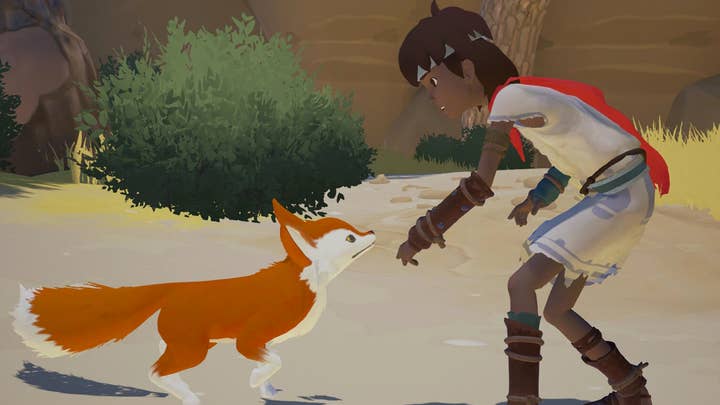
What qualities and skills do you need as a narrative director?
Ingold says that, as the title implies, you need two core skills to become a narrative director: narrative and direction.
"You need to understand how narrative is made, delivered and developed by a game and through game mechanics. You also need to be good communicators, capable of explaining and evangelising the narrative components of the game to their designers and across the wider team."
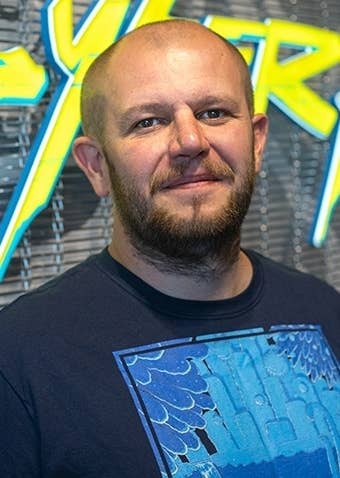
Khavari emphasises that this is a senior role and, while the routes to it may be varied, the experience gained along the way is vital. That experience, he says, comes from having shipped multiple titles as a writer or narrative designer.
"This is invaluable so you can draw from the good and the bad moments in your career to adapt to production needs. Being an effective communicator is equally important. On a project as big as Far Cry 6, you have to communicate the narrative vision of the game to hundreds of people. The onus is on you to share that vision effectively to your team. You can't be in a thousand places at once -- and you shouldn't be -- if you want to grow and empower others on your team.
"I can't tell you how often I meet writers who come into games and think that they can write their stories in an attic and emerge six months later with a perfect narrative that everyone will love. Nope. Game development at its heart is a collaborative medium. To become a narrative director, it's unbelievably important to have the skill to share and communicate effectively."
Mervik agrees, adding: "It's important to not work in a silo, where you close yourself off from good ideas from people in other disciplines. Ultimately, as the narrative director, it's your job to listen to feedback from both yourself and others, and then use your own best judgment to steer the narrative in a way that feels right for the game's core."
Khavari emphasises the need to take feedback and constructive criticism well, saying that you need to build a thick armour and not be precious about your work.
Sucasas offers his own example of dealing with feedback, pointing to a plot hole in one of Tequila Works' games that was spotted by a senior coder -- one that had been missed by all the writers, the game director and the narrative director.
A key quality studios look for in narrative directors, he continues, is vision. "It sounds a bit intangible, but that's the main thing. Being able to see in your mind what the best path is for the narrative inside the game you are making before anything is made. Even more, seeing that best path while everything is changing during development, big and small changes that affect your part."
"The onus is on you to share that vision effectively. You can't be in a thousand places at once if you want to grow and empower others on your team"
Navid Khavari, Ubisoft Toronto
He adds that narrative directors need to be good at managing teams and helping them achieve results during an "endless chain of deadlines." They also have to be aware of everyone's contribution to the same project, not just those involved with narrative.
"You have to be open at all times to understand what the other teams are doing, with which things they're struggling and if there's something you can do to help," he says. "Really knowing how a game is made in all departments is how to become a narrative director -- or any lead position in a company, really. You need to know much more than your field to lead a department successfully. Because a game company is a symbiotic organism."
Blacha adds that narrative directors should not only be supporting other talent but nurturing it: "When working with superior writers or designers, a director should recognise their talents and make sure that the result of their work produces a harmonious whole. For this, apart from skills related to storytelling, a narrative director must have good taste and broad horizons -- which allow different aesthetics to be looked at with equal sensitivity.
"At times, the role becomes more about guiding others and showing them in a certain direction. For this, a narrative director must show ingenuity, demonstrate their skills, and, above all, be able to effectively convey their vision. Of course, in every situation there will be people to work and communicate with, so the director must also know how to work well in a team, skilfully provide feedback, and conscientiously consider criticism."
It's obvious but it would be remiss not to mention that narrative directors need to be great writers and storytellers. Khavari says you need "master the craft if you want to ship your vision and to have the trust of your team."
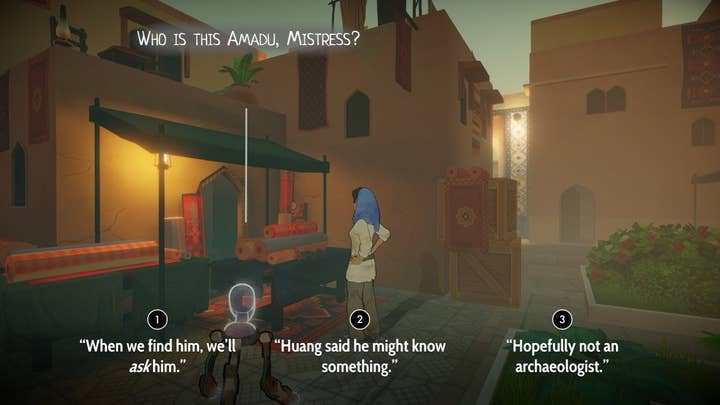
"Don't be afraid to make it personal either," he adds. "The best stories come from your own experience. Game narrative is no exception. If you want to be a narrative director it is important to tell a story that draws from you and your teams' life experiences, not copy others. That approach embraces different perspectives. It took me a long time to realize that as an immigrant Iranian-Canadian kid whose family fled a revolution, I had a history to draw from and a unique perspective to share. I hope you get the chance to do the same."
Fonnesbech agrees, emphasising the need to understand the basic tools of drama: conflict, character building, emotional orchestration, plots, and so on.
"It's important to not work in a silo, where you close yourself off from good ideas from people in other disciplines. It's your job to listen to feedback from both yourself and others"
Dave Mervik, Tarsier Studios
"These have been part of storytelling for centuries in books, movies and theater -- but you also have to understand how game stories are different," he says. "You can retell a good game story in much the same way as any other story, but how you build that experience in the player is often very, very different from a movie or a play.
"Different types of games have different narrative strategies -- the environmental and scene-based storytelling of HalfLife 2 is quite different from the 'story archaeology' of Bloodborne. This is again very different from the cut-scene storytelling in mobile games like Lily's Garden, or an RTS game like Iron Harvest. But when you look back on the experience you had with these games, they all feel like you experienced a story -- and if you do it right, it will be memorable enough that people want to come back and spend more time with that universe and those characters."
He adds that it also helps to have a "consulting mentality," again pointing to the need to be able to sit down with different leads and departments in order to fully gauge their goals and needs, and bring that together into a single, coherent story.
Advice for new and aspiring narrative directors
- Take any opportunity that will allow you to lead a team
To be a good narrative director, you need to learn how to lead a team, so capitalise on any opportunity you have to practice your leadership skills.
"This gives you the chance to prove you can also spearhead something: a narrative feature, storyline, or character," says Beeley. "Anything that shows you can take an idea, get people on board, and get it out to the players. "
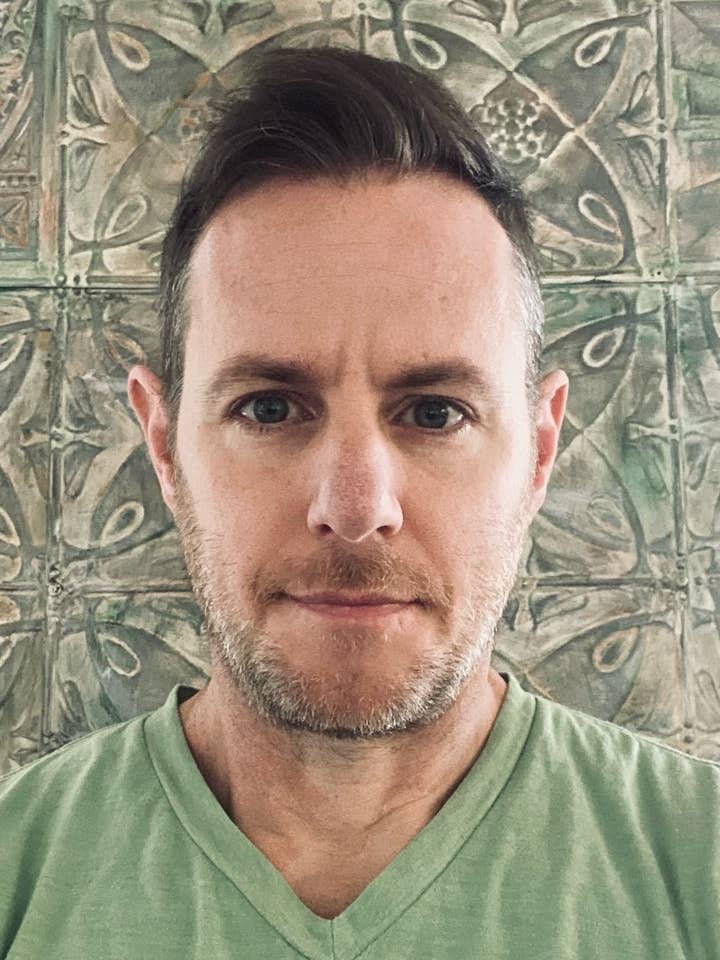
- Learn about other ways to deliver story in a game
Mervik stresses the importance of thinking about the game as a whole and how the narrative can work across various aspects.
"A great many games treat dialogue as the only vehicle for story, and while it's certainly useful, it can also have a negative effect if you forget about your characters, the world they inhabit, and how all that fits together in a good way," he says.
"One of the best things you can do is adopt a highly critical mindset when playing games and analyse how they convey their narrative. What tools are they using, and how effective are they? Pick it apart piece-by-piece and see what's left. For example, if you removed all the cutscenes and dialogue, would you still get a sense of the story?"
- Learn to write in English
Sucasas emphasises that video games is a global industry and the best way to deliver your ideas is using the most universal language -- "And that, folks, is good 'ol English," he adds.
He recognises that anyone for whom English is not their first language, they will write badly to begin with but stresses that this does not matter. He recommends reading Stephen King's "On Writing" and William Strunk Jr's "The Elements of the Style" as good resources.
Mervik also recommends two books all writers should check out: "Understanding Comics" by Scott McCloud and "The Writer's Journey" by Christopher Vogler.
- Play games
Many of these narrative directors agree it's not only important to play as many video games as possible, but also a wide variety.
"Play good games, bad games, popular games, and unpopular games," says Mervik. "Analyse what works, what doesn't, and why, and find yourself a standpoint.
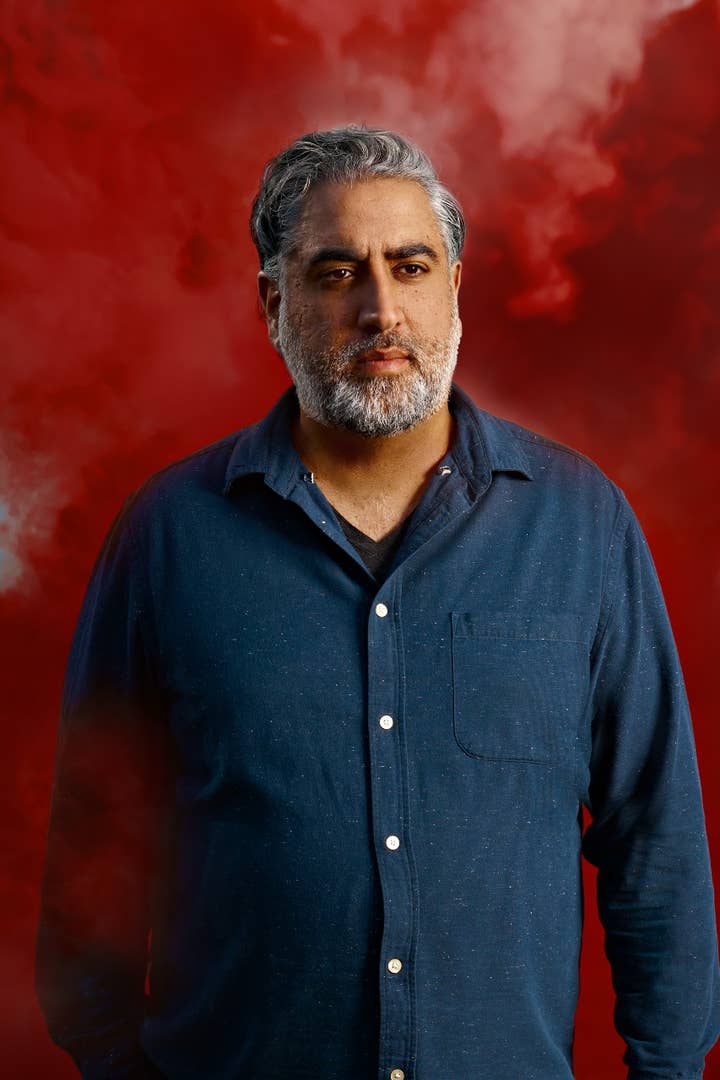
"It's still far too common that we look to movies and try to mimic what they do, but these are two very different media and what works for a film doesn't necessarily work for a game. You can achieve the same emotional effect as a movie without taking the same path to get there. Papers, Please was genuinely inspiring in this regard and has left a huge footprint on my own approach to narrative. I'll sing its praises til my dying day."
Khavari adds that narrative directors should "absorb as much as you can... from every scrap of story you can find" -- including outside the realm of games.
"There are so many other story outlets -- theatre, film, art galleries, music, dance -- whatever draws your interest," he says. "This gives you a leg up as it will greatly expand your points of reference and inspiration. It will keep your awareness of trends up to date and show you how to learn from others."
- Keep improving your skills
As demonstrated earlier, it can be a long road to becoming narrative director. The important thing is to continue expanding what you can bring to the table; naturally, this includes your writing and narrative skills but Ingold suggests some other questions directors should always be asking themselves to better understand the role of other departments.
"What can animators do, and what can't they do?" he says. "What's easy for a developer to add to the game, and what will you need to work around? What limitations do gameplay designers enjoy working around, and what will frustrate what they can do?
"Spending time talking to people outside of narrative is vital. If you want to be promoted, you need to make sure you don't get siloed away: you need to be connected and integrated with the wider team."
More GamesIndustry.biz Academy guides to Working in Games
Our guides to working in games cover various perspectives, from hiring to retention, to landing the job of your dream or creating the right company culture:
